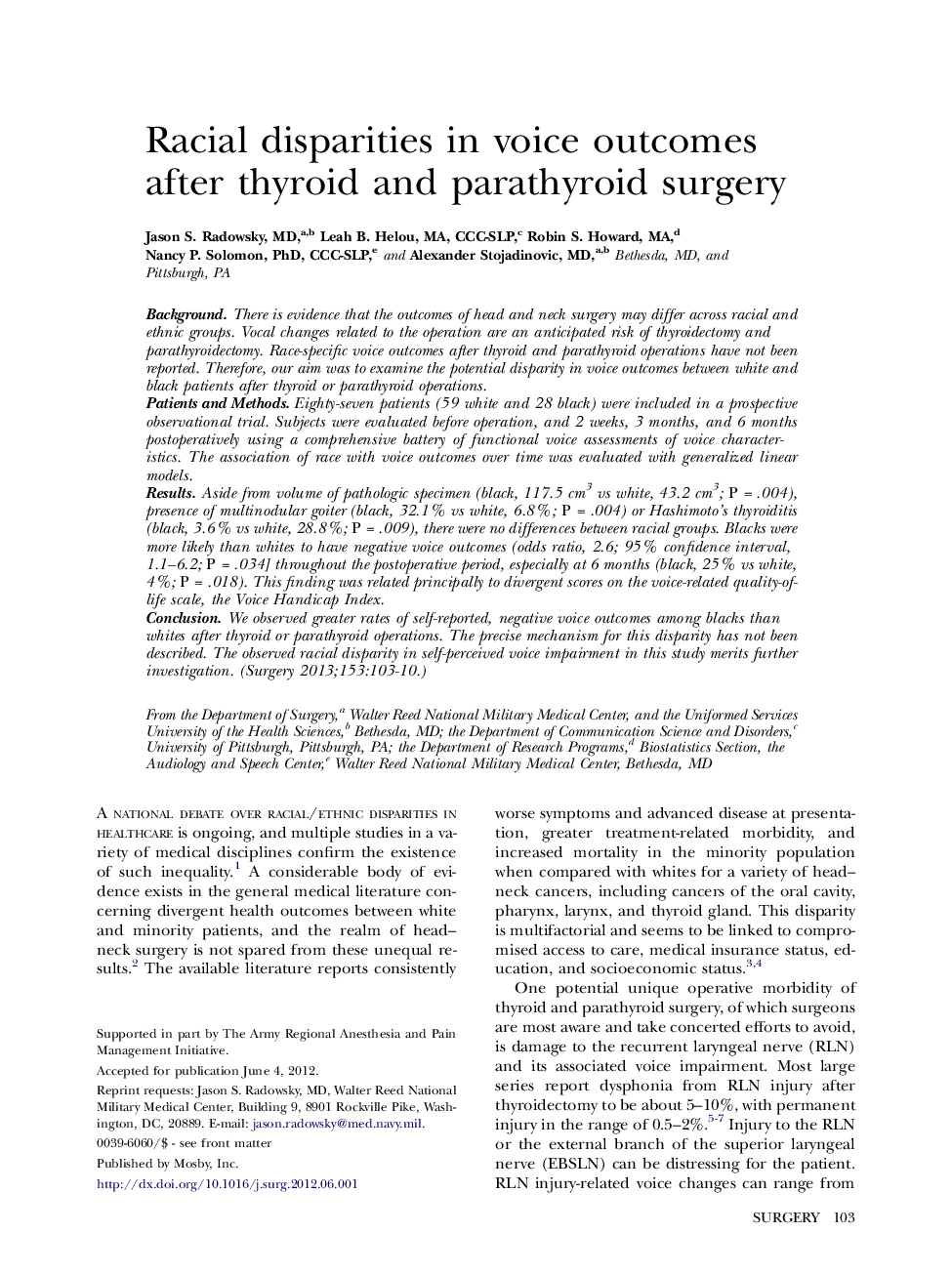| Article ID | Journal | Published Year | Pages | File Type |
|---|---|---|---|---|
| 4307694 | Surgery | 2013 | 8 Pages |
BackgroundThere is evidence that the outcomes of head and neck surgery may differ across racial and ethnic groups. Vocal changes related to the operation are an anticipated risk of thyroidectomy and parathyroidectomy. Race-specific voice outcomes after thyroid and parathyroid operations have not been reported. Therefore, our aim was to examine the potential disparity in voice outcomes between white and black patients after thyroid or parathyroid operations.Patients and MethodsEighty-seven patients (59 white and 28 black) were included in a prospective observational trial. Subjects were evaluated before operation, and 2 weeks, 3 months, and 6 months postoperatively using a comprehensive battery of functional voice assessments of voice characteristics. The association of race with voice outcomes over time was evaluated with generalized linear models.ResultsAside from volume of pathologic specimen (black, 117.5 cm3 vs white, 43.2 cm3; P = .004), presence of multinodular goiter (black, 32.1% vs white, 6.8%; P = .004) or Hashimoto's thyroiditis (black, 3.6% vs white, 28.8%; P = .009), there were no differences between racial groups. Blacks were more likely than whites to have negative voice outcomes (odds ratio, 2.6; 95% confidence interval, 1.1–6.2; P = .034] throughout the postoperative period, especially at 6 months (black, 25% vs white, 4%; P = .018). This finding was related principally to divergent scores on the voice-related quality-of-life scale, the Voice Handicap Index.ConclusionWe observed greater rates of self-reported, negative voice outcomes among blacks than whites after thyroid or parathyroid operations. The precise mechanism for this disparity has not been described. The observed racial disparity in self-perceived voice impairment in this study merits further investigation.
